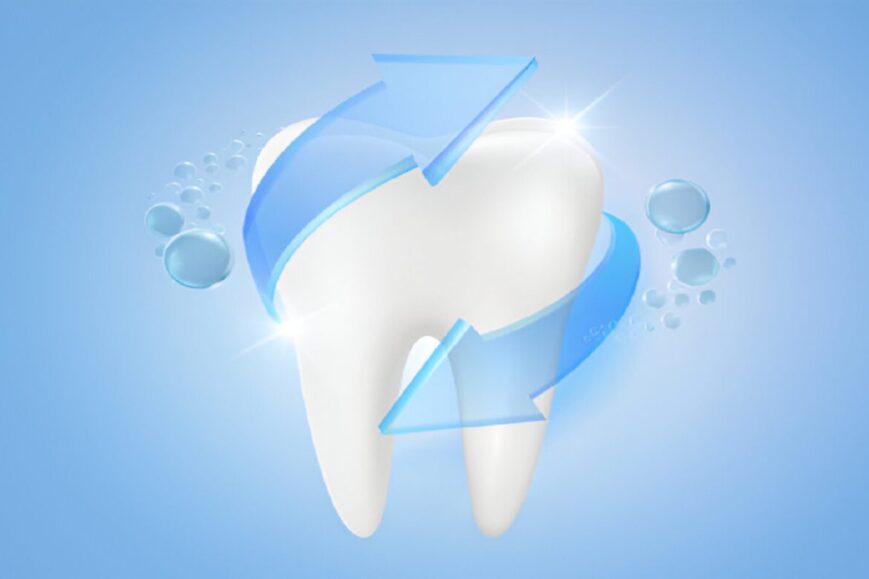How to Handle Tooth Sensitivity: Tips for Immediate Relief
Tooth sensitivity is a common problem that affects millions of people worldwide. It can cause discomfort or pain when consuming hot, cold, sweet, or acidic foods and beverages. In some cases, even breathing in cold air can trigger that familiar sharp sensation. If you’re dealing with tooth sensitivity, you know how disruptive it can be to your daily life. Thankfully, there are several ways to manage and even prevent this issue.
In this article, we’ll explore what causes tooth sensitivity and offer practical tips for immediate relief, as well as long-term strategies to keep your teeth feeling their best.
1. What Causes Tooth Sensitivity?
Tooth sensitivity occurs when the protective layers of your teeth are worn down, exposing the softer inner layer called dentin. Dentin contains tiny tubes or canals that lead directly to the tooth’s nerve. When exposed, these canals allow stimuli—such as hot or cold temperatures, pressure, or acidity—to reach the nerve, causing the sharp pain associated with sensitivity.
Several factors can lead to tooth sensitivity, including:
- Enamel erosion: Over time, your enamel (the hard, outer layer of the tooth) can wear away due to acidic foods, aggressive brushing, or teeth grinding.
- Gum recession: As gums recede due to gum disease or age, the roots of your teeth become exposed, increasing sensitivity.
- Dental procedures: Teeth whitening, fillings, or cleanings can temporarily heighten sensitivity.
- Cracked or chipped teeth: Damage to a tooth can expose the dentin, leading to sensitivity.
- Tooth decay: Cavities can also cause sensitivity by creating holes that expose the inner parts of your teeth.
If you’re experiencing ongoing tooth sensitivity, it’s important to consult a dental professional to rule out any serious underlying issues. A Sydney Park dentist can help identify the cause of your sensitivity and provide a tailored treatment plan.
2. Immediate Relief for Tooth Sensitivity
When tooth sensitivity strikes, you want fast relief. Fortunately, there are several simple remedies you can try at home to alleviate discomfort.
Use Desensitising Toothpaste
One of the easiest ways to manage tooth sensitivity is by switching to a desensitising toothpaste. These specially formulated products contain ingredients like potassium nitrate or stannous fluoride, which help block the transmission of pain signals from the tooth’s surface to the nerve. Regular use of desensitising toothpaste can reduce sensitivity over time, but you may also notice some immediate relief after just a few applications.
For best results, brush with the toothpaste at least twice a day, making sure to focus on the sensitive areas of your teeth. It may take a few days to a week of consistent use before you experience significant improvement.
Apply Fluoride Gel
Fluoride strengthens tooth enamel and reduces the sensitivity of exposed dentin. You can apply an over-the-counter fluoride gel or rinse to your teeth to provide a protective barrier. Simply follow the instructions on the product, or ask your dentist for a professional-strength fluoride treatment if your sensitivity is more severe.
Avoid Trigger Foods and Beverages
Certain foods and drinks can exacerbate tooth sensitivity, particularly those that are hot, cold, sweet, or acidic. If your teeth are feeling particularly sensitive, try to avoid consuming foods like citrus fruits, soft drinks, ice cream, and sugary treats until the sensitivity subsides.
Drinking through a straw can also help minimise contact between sensitive teeth and cold beverages. This way, the liquid bypasses the front teeth, reducing discomfort.
Use a Soft-Bristled Toothbrush
If you’re using a hard-bristled toothbrush, it’s time to make the switch to a soft-bristled one. Hard bristles can wear away enamel and aggravate gums, contributing to sensitivity. A soft-bristled brush is gentle on both the teeth and gums, helping to prevent further damage while still effectively cleaning your teeth.
Additionally, be mindful of your brushing technique. Avoid brushing too hard or aggressively, as this can erode enamel and irritate sensitive areas. Use gentle, circular motions to clean your teeth without causing further harm.
3. Long-Term Solutions for Tooth Sensitivity
While immediate relief is important, it’s essential to address the root causes of tooth sensitivity to prevent it from becoming a chronic issue. Implementing long-term strategies can help protect your teeth and reduce the likelihood of future discomfort.
Improve Your Oral Hygiene Routine
Maintaining good oral hygiene is key to preventing sensitivity. Brush your teeth twice a day using fluoride toothpaste, and floss daily to remove plaque and food particles from between your teeth. Consistent care helps prevent gum disease and enamel erosion, both of which contribute to sensitivity.
In addition to brushing and flossing, consider using an alcohol-free mouthwash that contains fluoride. This can provide an extra layer of protection and help strengthen your enamel.
Address Teeth Grinding (Bruxism)
Teeth grinding, also known as bruxism, can wear down your enamel and lead to sensitivity. If you suspect that you grind your teeth—either during the day or while sleeping—speak with your dentist. They may recommend a custom-fitted mouthguard to wear at night, which can protect your teeth from further damage.
Managing stress through relaxation techniques, such as meditation or yoga, can also help reduce teeth grinding, as stress is a common trigger for this behaviour.
Seek Professional Dental Treatments
If at-home remedies don’t provide sufficient relief, your dentist can offer more advanced treatments to address tooth sensitivity. These treatments may include:
- Fluoride varnish: A concentrated fluoride treatment applied directly to the teeth to strengthen enamel and reduce sensitivity.
- Dental bonding: Applying a tooth-coloured resin to exposed root surfaces can help protect sensitive areas and prevent discomfort.
- Gum grafting: If gum recession is causing your sensitivity, your dentist may recommend a gum graft to cover exposed roots and protect your teeth from further irritation.
- Root canal: In cases where severe decay or damage is causing sensitivity, a root canal may be necessary to remove the damaged nerve and eliminate pain.
Your dentist will assess the cause and severity of your sensitivity before recommending the most appropriate treatment.
4. Prevent Tooth Sensitivity from Worsening
Prevention is always better than cure. To protect your teeth from sensitivity in the future, follow these preventive measures:
- Avoid acidic foods and beverages: Limiting your intake of acidic items like citrus fruits, soda, and vinegar-based foods can help prevent enamel erosion.
- Use a straw for acidic or cold drinks: This reduces contact between your teeth and the liquid.
- Rinse your mouth after eating acidic foods: If you do consume something acidic, rinse your mouth with water to neutralise the acids and protect your enamel.
- Schedule regular dental check-ups: Routine visits to your dentist ensure that any potential issues, like gum disease or enamel erosion, are caught early before they lead to sensitivity.
Final Thoughts
Tooth sensitivity is an uncomfortable but manageable issue that many people face. While it can be frustrating to deal with, there are plenty of steps you can take to find immediate relief and prevent further discomfort. From switching to desensitising toothpaste to adopting better oral hygiene practices, these tips can help you protect your teeth and enjoy life without the pain of sensitive teeth.
If your sensitivity persists or worsens, it’s important to consult with a dental professional. A trusted dentist can provide tailored treatments to address the underlying causes of your sensitivity and help you maintain a healthy, pain-free smile. Remember, taking care of your teeth today will save you from discomfort tomorrow!


